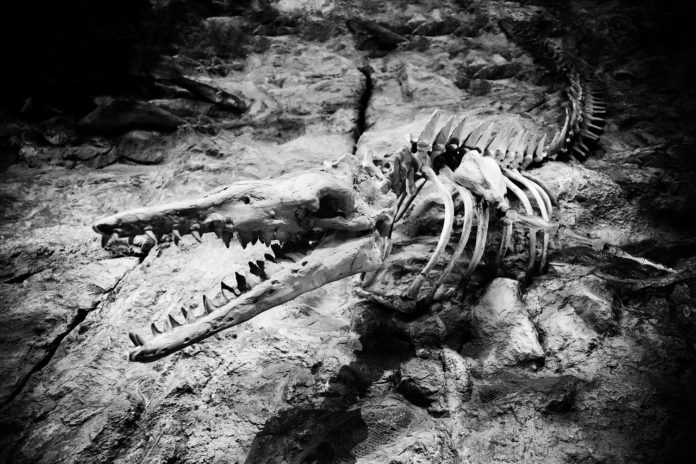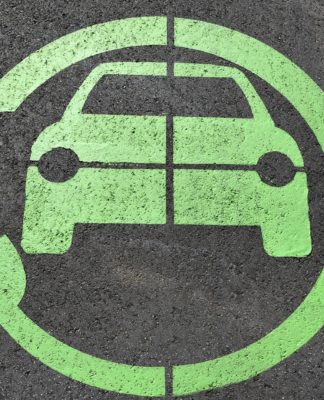
It’s pretty common these days to think about the human race going extinct. From the doomsday clock sitting at 2 and a half minutes to midnight, to Elizabeth Kolbert’s Pulitzer Prize-winning book The Sixth Extinction, to dozens of novels, movies, and soothsayers calling for our demise, it’s a pretty dark time to be a human.
Is going extinct really something we should be worried about?
We’re a fairly resilient bunch, and the short answer is no. Not anytime soon, at least.
But how? With so many terrible things out there trying to kill us, including ourselves?
Let’s take a look:
Giant asteroids are a common villain in the story of humanity’s demise. But it’s extremely unlikely (more or less impossible) that something like that is going to wipe us out. Plenty of species survived the Chixculub impact about 66 million years ago (though not the dinosaurs), and humans, being more adaptable (more on that later), and with technology and tools, would likely survive as well. Plus, the solar system calmed down about three billion years ago, so we’re not going to see any asteroids worse than that one, or even of that size, coming our way anyway (as we have learned from studying the cratering record of the inner solar system).
And, just to help you sleep even more soundly tonight, we have technology now to see asteroids coming and take care of them long before they make impact with earth. Then, we can just send Bruce Willis up to save us (though Ben Affleck won’t be joining this time, he is too busy with Batman).
Other popular ways doomsday enthusiasts predict will take us out: natural disasters, climate change, disease, and nuclear holocaust. To be clear, all of these things (in worst-case scenarios) would be devastating to humans.
But they won’t wipe us out entirely.
Humans are an incredibly adaptable species; perhaps the most adaptable species on the planet. We’re very unique in this way. We’ve already colonized the most extreme landscapes on earth (from desert to tundra) and even with the most basic, Stone Age tools we would be able to continue living in any condition the earth were left in. Not even a super volcano, which could potentially turn the earth cold and dark for decades, would make the tropics as tough to live in as the arctic.
Basically, there is no natural disaster that would render earth completely uninhabitable to humans.
Plus, humans are omnivores.
We can eat and survive on just about any time of sustenance. We can eat roots, fruits, seaweed, shellfish, bugs… basically whatever was left wherever we were left would nourish us to survive long enough to reproduce (and other species would survive these disasters for us to eat as well).
Climate Change
Climate change won’t kills us off either. In order to kill everything and turn the earth into another Venus, we would have to take zero precautions and burn every bit of carbon-emitting coal, etc. we have on the planet. Even then, it’s a dubious claim.
We’ll see some flooding of lowland areas, and the disappearance of islands and coasts across the planet. We’ll see the extinction of other species. But not us.
And, on the bright side, a state like Minnesota would probably turn into a lovely tropical paradise while the coasts crumble into the ocean. So we’re all good here. We’ll just build a wall a la Trump to keep those New Yorkers and Californians out…
As we talked about earlier, there is no cataclysmic event would render earth completely inhospitable to humans. Those predicting that climate change will wipe out humanity think of humans the way we think of other creatures on earth. We, with our tools and our ability to live just about anywhere, simply are not.
But this doesn’t mean climate change isn’t a huge problem.
This doesn’t mean we should take climate change lightly. Countless species will go extinct, including corral reef (due to the acidity of the ocean), polar bears (due to arctic melting) and countless others (more here) and it would do nothing good for humans or our beloved (and only) planet earth. People will die, be displaced, starve. Ecosystems will disappear. Just because we won’t go extinct doesn’t mean we can breathe a collective sigh of relief and go back to our old ways; extinction might sound like mercy given the quality of life we’re left with.
Disease
Disease, something you can hardly see or touch, is certainly a scary thought. We as humans have survived horrible diseases in the past, the bubonic plague (the Black Death), for example, but it’s hard to know if there is something lurking in the jungle waiting to attack our unsuspecting immune systems.
But even diseases like the Black Death only wiped out a portion of the world population. Terrible, to be sure. But no extinction.
Because here is the Catch-22 for microbes and viruses: they can really only thrive if humans survive. If a disease kills humans too quickly, it doesn’t have a chance to spread. A disease will adapt to us (to survive) just as we are adapting to it (to survive). And there are always a handful of humans who are naturally immune to any natural disease anyway to keep the last of us going.
If humans weren’t so spread out across the earth, living in different climates and habitats, the fear of extinction by disease would be much more realistic. An isolated species living in close quarters is much more at risk of being wiped out by disease. There are plenty of people living in areas of the world completely cut off the rest that, in the worst-case scenario, would then pop up surprised to find they are the only ones left at the party.
Nuclear holocaust
While nuclear weapons stockpiles have been decreasing since the 1950’s, there are still more than enough warheads on hand to cause some pretty serious damage to humanity. This perhaps is the most imminent threat. The idea of terrorists getting their hands on them is am unsettling thought as well.
But there are a few reasons why you don’t have to worry about this: There is really no political (or any) gain from blowing up the planet, because, well, survival. And the UN has been working for the past twenty years to ensure this doesn’t happen. Even the smallest country or group to try and use a nuke would be quickly dismantled.
The worst case scenario in which multiple nukes are detonated, the range of destruction of each warhead would be fairly isolated and complete destruction of our landscape would be likely only if cities were still built like 1945 Hiroshima. Which they’re not. And again, we’re so spread out that even in the event of all-out nuclear war, there would be some of the world’s population left (more or less) unaffected.
And we mentioned before that the remaining landscape would not be too hostile for at least some humans to survive, and the radiation would be dealt with in time as well (i.e. some humans would survive). It would be a terrible, terrible thing. But, simply for the purposes of this article, we would not go extinct.
We’re going to hang around for the foreseeable future.
But if there is a reason to try and make the world a better place, to combat climate change, to promote peace, to be conscious of the small blue world on which we live, it’s exactly that: There won’t be anything so merciful as to just wipe us out; it will just make life really, really shitty for anyone who is left.
That leaves us with aliens. If you adhere to the Drake equation, then you believe in the probability of life on other planets. Stephen Hawking and his big brain have promoted the idea that if aliens do come to earth, it won’t end well for us. So, I guess this is the most likely scenario in which humans disappear entirely from the planet. Aliens. Sorry it had to end this way.
And for those who believe in the rapture, well, I guess there’s no reason to worry about going extinct anyway.
Read next: My mother is still stronger than cancer, even though it took her life
















